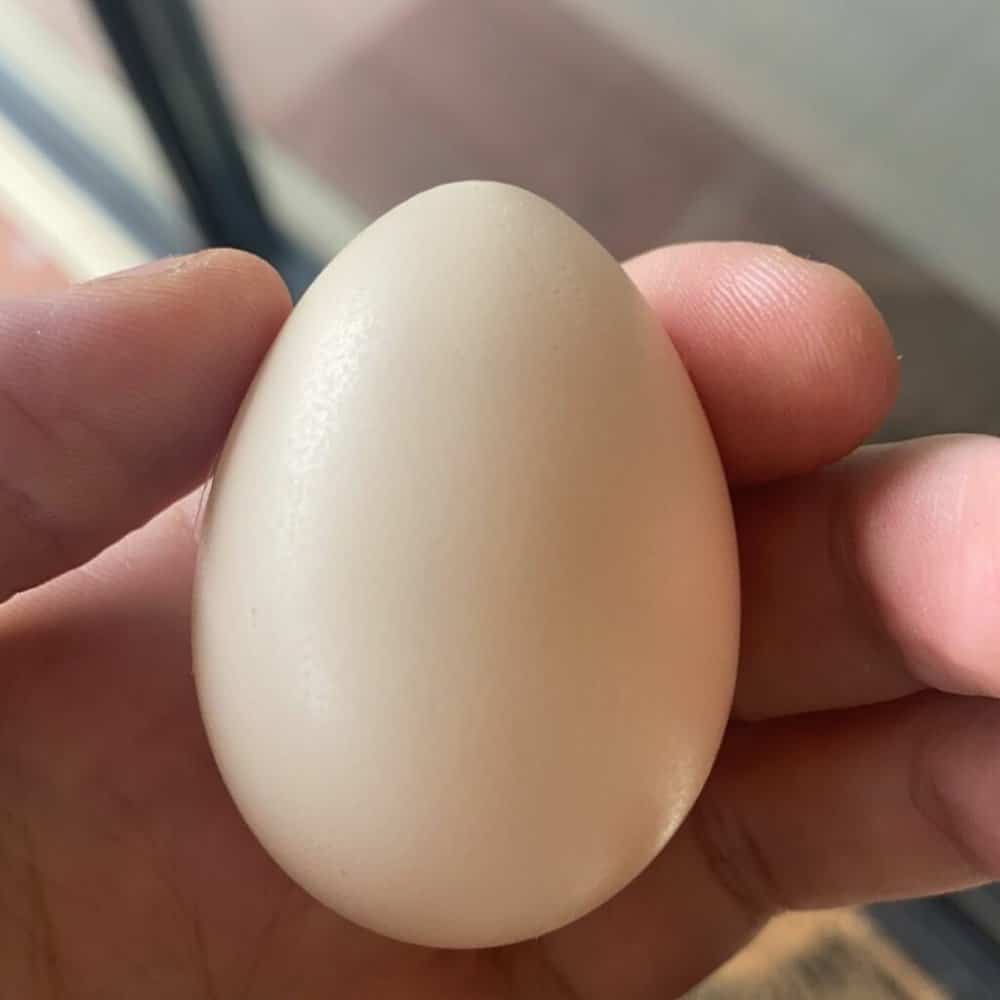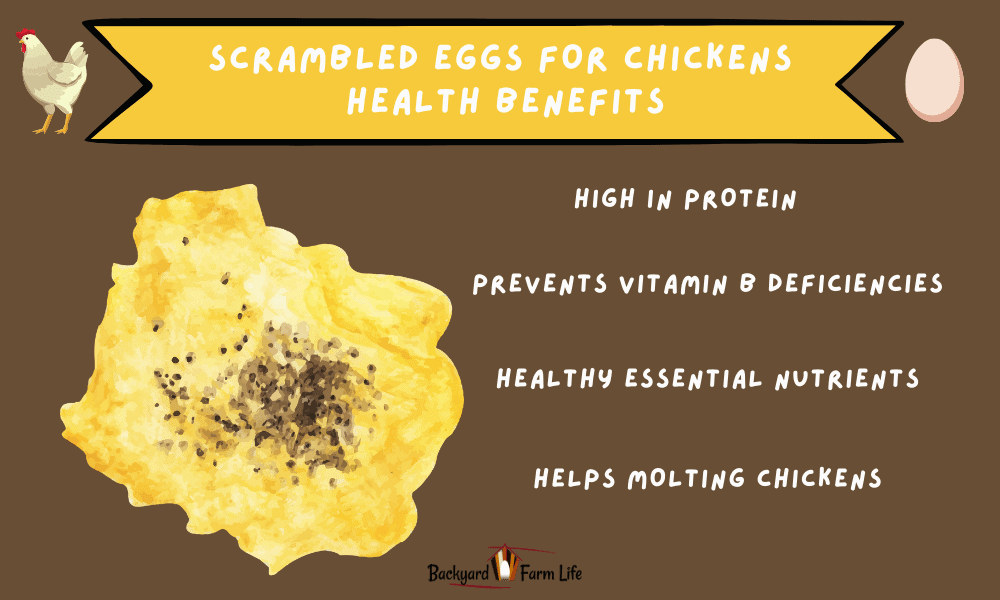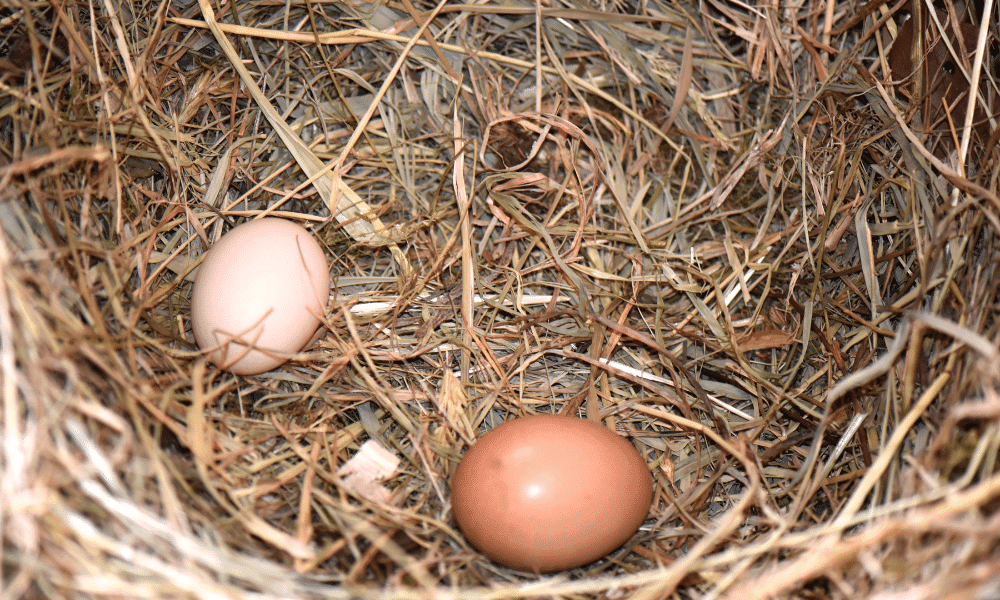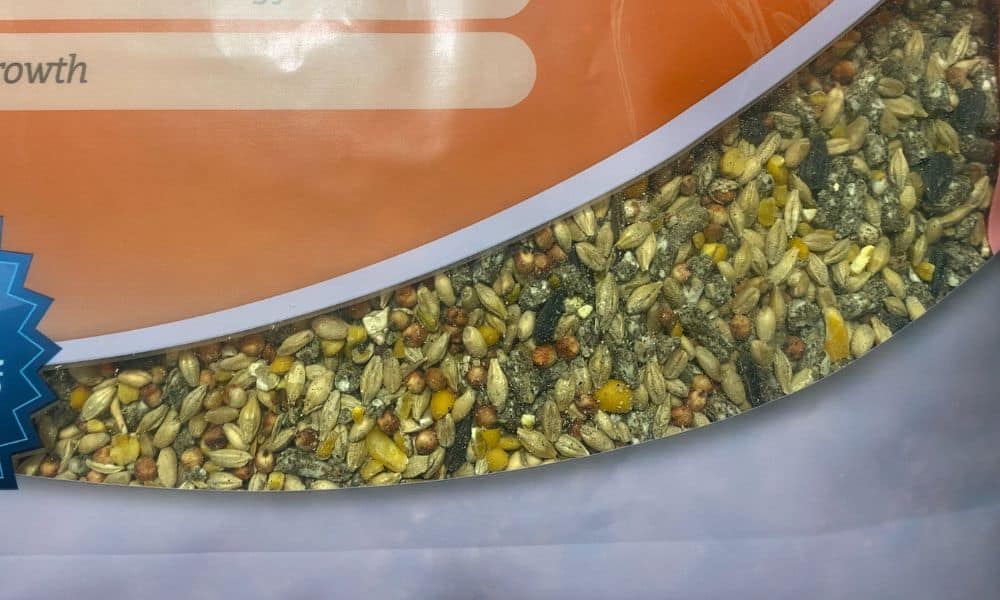There’s no feeling quite like finding your chickens’ first egg. Even after raising dozens and dozens of chickens I still get euphoric when I discover my young hen’s first egg!
Safe to say we’re addicted to chickens.
Since you’re here and you’re wondering if you can eat your chicken’s first egg, we’re betting you’ve recently become addicted too!
Here’s whether you can eat your chicken’s first egg, what you need to know, and some other ways you can honor your chicken’s first eggs without eating them.
Contents
Can You Eat Your Chickens’ First Egg?

After you finally settle down from all the excitement you may be looking at your first egg and wondering if it’s safe to eat.
To be fair, some hen’s first eggs can be slightly misshaped or smaller than normal.
It’s only natural to think that since your hens are brand new to the laying game there may be something not quite right with their first eggs.
But in fact, the first egg your chicken lays is completely safe to eat!
Eggs from pullets (hens under one year old) are actually considered a delicacy and are called pullet eggs. These eggs are much smaller in size but have noticeably more vibrant, rich yolks which are perfect for use in baking and cooking.
Nevertheless, there might be some truth behind contradicting views, for commercial poultry farmers at least. Industry-born hens are usually medicated to allow for faster and healthier growth. So, if these medicated pullets lay at a young age their eggs may have various unnatural hormones or compounds in them.
But, for the average backyard farmer with free-ranging or otherwise healthy and happy hens, the first egg is completely safe to eat, and it’s considered an honor to do so.
How To Eat Your Chickens’ First Egg
It’s absolutely OK to cook your chicken’s first eggs the same way you would any regular egg.
There really is something quite special about a hen’s first egg, so I would recommend cooking it in your favorite way to enjoy it the most.
Be sure to share it around the household too, you can even feed some back to your chickens too (here’s why we always feed our flock scrambled eggs).
Cooking With Pullet Eggs
Even after your first egg, for the first year of your hen’s life, any eggs they lay will be considered pullet eggs. Again, these eggs, even the very first one, are perfectly safe to eat.
In the cooking and baking industry, some chefs exclusively use pullet eggs because of their vibrant yellow yolks, and enriched flavor over a normal hen’s egg. Since the yolks are vibrant and hold together well they are amazing for breakfast dishes, whether it’s poached or fried eggs.
In baking, a pullet egg may be used over a normal egg as it has a much richer and thicker texture, being heavier on the yolk side than the white. Some pastry chefs will even add just one pullet egg in the mix of other eggs to deepen the flavor and texture of their baking.
You can also add your pullet eggs in your condiments like hollandaise, mayo, or aioli too!
How Else Can You Honor Your Chickens’ First Egg?
As much as your new egg is beautiful in all its glory, you can’t leave it in the egg tray forever.
If you are against eating your chicken’s first egg then you may want to honor it in a different way.
Aside from cooking and eating your chicken’s first egg, another way you can use it to give back to the earth, celebrate, and honor the egg is to feed it back to your chickens.
In fact, cooking your chicken’s eggs, scrambling them, and feeding them to your flock is incredibly healthy for chickens, providing much-needed protein for regular egg production.
You can also dry out the eggshell, crush it up, mix it with wholegrain bread and a little bit of milk and feed it back to your flock too. This will give them a calcium boost which will also help with creating the shell of the next eggs!

What To Do After Finding Your Chickens’ First Egg
After you’ve received and celebrated your chickens’ first egg, there are a few actions you can take to encourage the right behaviors and to promote regular egg production in your laying hens. After all, it’s pretty common for newly laying hens to lay eggs rather inconsistently for a few months.
Encourage Them To Lay In Their Nesting Boxes

It’s hilarious when you find an egg out of place, like in a box, somewhere hidden in the yard, or lying in the grass somewhere! It happens frequently with your pullet’s first eggs as they are just learning the process.
To encourage your new producer to lay in the right place you may wish to use a dummy egg, or similarly shaped item and place it in their nesting box. They will see this and think it’s an egg, and naturally, your hens will try to lay eggs next to it — it’s instinct!
Getting your chickens to lay their eggs in the right places not only makes it easier for you to collect them, but it also stops hidden eggs from going bad, or your chickens eating their own eggs in confusion.
Begin The Change To Layer Feed

It is important to change to layer feed once your hens start laying as it contains different nutrients that are essential for regular egg production, including protein, calcium, and other necessary minerals.
Once your chickens have been laying eggs regularly for a month or so you can broaden the chicken’s diet and start feeding them healthy table scraps like vegetables and fruits to bolster their nutrient intake.
So There You Have It
If you have your own farm, whether it’s a small backyard operation or you simply keep backyard chickens because you love them to bits — then it’s absolutely safe to eat your chicken’s first eggs — and they’re absolutely delicious!
If you aren’t convinced about eating the first egg you can always scramble it and feed it back to your chickens to honor and celebrate it, and give your chickens a good protein boost to help them continue laying!
After you find your first egg you can start to encourage your pullets to lay in their nesting boxes, and begin the transition to layer pellets to enjoy many many more eggs to come!
Welcome to the addiction that is raising chickens.
